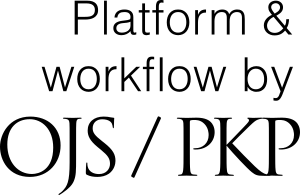Sexual harassment and burnout in health care context
DOI:
https://doi.org/10.48797/sl.2023.108Keywords:
PosterAbstract
Background: Burnout is a major problem among physicians [1]. Women physicians experience higher rates of both burnout and sexual harassment than their male counterparts. Sexual harassment may contribute to burnout. Some studies have shown a correlation between sexual harassment at workplace and burnout in women physicians [1]. Objective: The purpose of this study is to identify the relationship between sexual harassment and burnout in female physicians in a health care context. It is hypothesized that sexual harassment would be associated with female physician burnout. Methods: Apply a cross-sectional self-report study to assess burnout and sexual harassment among medical professionals [2]. Burnout will be assessed by the Maslach Burnout Inventory (MBI) for Portuguese samples. Sexual harassment will be assessed with an adaptation of the Sexual Experiences Survey – Victimization Form [3]. Results: It is expected that respondents report some kind of sexual harassment experiences perpetrated by their work colleagues and eventually those experiences would be significantly correlated with burnout scores on female physicians [1,4]. Conclusions: This study expects to find that reports of burnout and sexual harassment perpetrated by work colleagues are significantly correlated. The results may also imply that there are significant rates of sexual harassment in medical settings.
References
1. Mathews, E.; Hammarlund, R.; Kullar, R.; Mulligan, L.; Le, T.; Lauve, S.; Nzodom, C.; Crapanzano, K. Sexual harassment in the house of medicine and correlations to burnout: a cross-sectional survey. Ochsner J 2019, 19, 329-339.
2. Fonte, C. Adaptação e validação para português do questionário de Copenhagen Burnout Inventory (CBI). [Dis-sertação de Mestrado, Faculdade de Economia da Universidade de Coimbra]. 2011.
3. Freitas, S. Vitimização sexual: estudo exploratório acerca da satisfação sexual e satisfação com a vida em estudantes universitárias. [Dissertação de Mestrado, Faculdade de Psicologia e de Ciências da Educação da Universidade do Porto]. 2020.
4. Hu, Y.; Ellis, R.; Hewit, D.; Yang, A.; Cheung, E.; Moskowitz, J.; Potts, J.; Buyske, J.; Hoyt, D.; Nasca, T.; Bilimoria, K. Discrimination, abuse, harassment, and burnout in surgical residency training. N Engl J Med 2019, 381, 1741-1752.
Downloads
Published
How to Cite
Issue
Section
License
Copyright (c) 2023 J. Figueira, M. J. Alves

This work is licensed under a Creative Commons Attribution 4.0 International License.
In Scientific Letters, articles are published under a CC-BY license (Creative Commons Attribution 4.0 International License), the most open license available. The users can share (copy and redistribute the material in any medium or format) and adapt (remix, transform, and build upon the material for any purpose, even commercially), as long as they give appropriate credit, provide a link to the license, and indicate if changes were made (read the full text of the license terms and conditions of use).
The author is the owner of the copyright.









